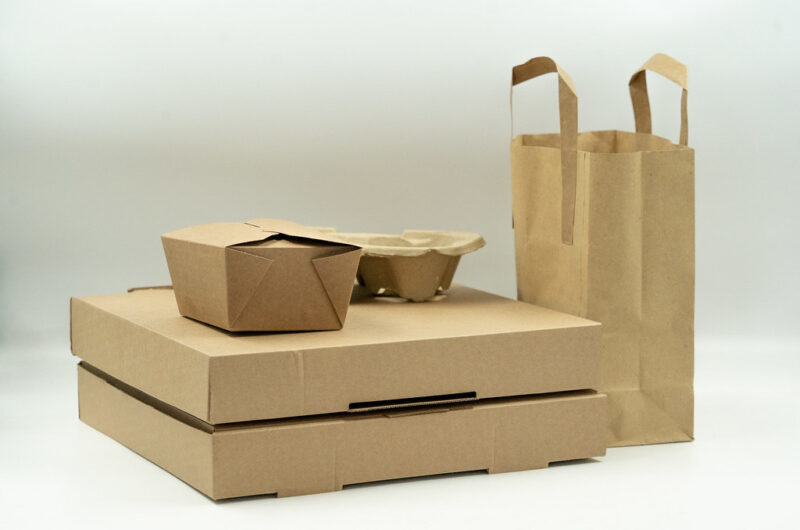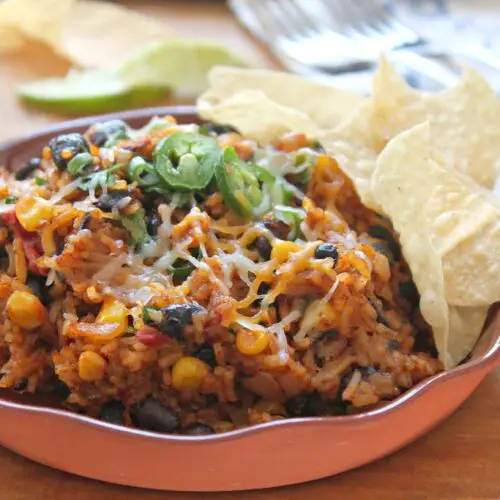In recent years, sustainability has shifted from a niche buzzword to a core driver of business strategy across industries.
Nowhere is this transformation more evident than in the food sector, where companies face mounting pressure to address environmental concerns, ethical sourcing, and consumer demands for transparency. From plant-based innovations to carbon-neutral supply chains, food companies are rethinking their operations to align with a world increasingly focused on combating climate change and preserving resources. This article explores how food companies are adapting to sustainability trends, the forces propelling this shift, and the challenges and opportunities that lie ahead.
The Rise of the Conscious Consumer
At the heart of this transformation is the modern consumer. Today’s shoppers are more informed and discerning than ever, armed with smartphones and a growing awareness of the environmental and social impacts of their purchases.
A 2023 NielsenIQ report found that 73% of global consumers say they would change their consumption habits to reduce their environmental footprint. This shift is particularly pronounced among younger generations like Millennials and Gen Z, who prioritize sustainability and are willing to pay a premium for eco-friendly products.
For food companies, this means sustainability is no longer optional—it’s a competitive necessity. Brands that fail to adapt risk losing market share to competitors who can demonstrate a commitment to the planet. Take, for example, the meteoric rise of plant-based meat alternatives. Companies like Beyond Meat and Impossible Foods have capitalized on the demand for sustainable protein options, marketing their products as low-carbon alternatives to traditional livestock farming, which accounts for nearly 14.5% of global greenhouse gas emissions according to the United Nations’ Food and Agriculture Organization (FAO). Major food giants, such as Nestlé and Tyson Foods, have followed suit, launching their own plant-based lines to stay relevant.
Redefining the Supply Chain
Sustainability starts long before a product hits the shelf—it begins in the supply chain. Food companies are increasingly scrutinizing every step of their operations, from raw material sourcing to packaging, to reduce their environmental footprint. One prominent trend is the move toward regenerative agriculture, a farming practice that aims to restore soil health, sequester carbon, and enhance biodiversity. Companies like General Mills and PepsiCo have pledged to source key ingredients—like wheat, corn, and oats—from regenerative farms. General Mills, for instance, committed to advancing regenerative agriculture across 1 million acres by 2030, recognizing that healthy soil not only mitigates climate change but also ensures long-term crop resilience.
Another critical focus is reducing food waste, a staggering issue given that roughly one-third of all food produced globally—about 1.3 billion tons—is lost or wasted each year, per FAO estimates. Companies are tackling this through innovative partnerships and technology. Kroger, a major U.S. grocery chain, has implemented AI-driven inventory systems to better predict demand and minimize overstocking. Meanwhile, brands like Unilever are repurposing “ugly” produce—fruits and vegetables that don’t meet cosmetic standards—into products like soups and sauces, cutting waste while appealing to sustainability-minded consumers.
Packaging, too, is undergoing a revolution. Single-use plastics have long been a staple of food packaging, but with plastic pollution choking oceans and landfills, companies are racing to find alternatives. Coca-Cola, for example, rolled out its PlantBottle initiative, using bio-based materials to create partially plant-derived plastic bottles.
Elsewhere, startups like Notpla are pioneering edible packaging made from seaweed, offering a biodegradable solution for items like sauces and drinks. These innovations reflect a broader industry push to achieve circular economies, where materials are reused rather than discarded.
The Plant-Based Boom and Beyond
Perhaps the most visible sign of sustainability in the food industry is the explosion of plant-based products. What began as a niche market for vegetarians has evolved into a mainstream movement, driven by concerns over climate change, animal welfare, and personal health. The global plant-based food market is projected to reach $162 billion by 2030, according to Bloomberg Intelligence, with growth fueled by everything from oat milk lattes to vegan burgers.
Major players are leaning hard into this trend. Burger King’s Impossible Whopper, launched in 2019, brought plant-based eating to fast-food menus nationwide, while McDonald’s has tested its McPlant burger in select markets. These moves aren’t just about optics—reducing reliance on animal agriculture cuts emissions, water use, and land degradation. Producing a beef patty, for instance, generates up to 20 times more greenhouse gases than a plant-based equivalent, per Oxford University research.
But sustainability isn’t limited to plant-based diets. Companies are exploring alternative proteins like lab-grown meat and insect-based foods, which promise to further slash environmental impacts. Memphis Meats, a pioneer in cultured meat, grows beef and chicken from animal cells without raising or slaughtering livestock, potentially reducing land use by 99%. Meanwhile, brands like Jimini’s and Essento are normalizing crickets and mealworms as protein-rich, low-impact snacks in Europe, where insects require far less water and feed than traditional livestock.
Energy, Water, and Carbon Commitments
Beyond products and packaging, food companies are tackling their operational footprints. Many are setting ambitious goals to achieve net-zero carbon emissions, spurred by frameworks like the Paris Agreement and investor pressure. Mondelez International, the maker of Oreos and Cadbury, aims to reach net-zero emissions across its value chain by 2050, investing in renewable energy and energy-efficient manufacturing. Similarly, Danone has slashed water usage in its production facilities, recognizing that water scarcity—exacerbated by climate change—threatens both agriculture and communities.
These commitments often come with hefty price tags, but they’re proving to be smart business. A 2022 McKinsey study found that companies with strong environmental, social, and governance (ESG) performance outperform their peers financially over the long term. Consumers reward brands that align with their values, and regulators are increasingly incentivizing—or mandating—sustainable practices. In the European Union, for instance, the Green Deal imposes strict emissions targets, pushing food companies to act or face penalties.
Challenges on the Path to Sustainability
Despite the progress, adapting to sustainability trends isn’t without hurdles. Cost remains a significant barrier.
Regenerative farming, biodegradable packaging, and renewable energy require upfront investments that can strain profit margins, especially for smaller companies. While consumers say they’ll pay more for sustainable products, studies show price sensitivity often trumps ideals at the checkout counter. This gap forces companies to balance innovation with affordability, a tightrope walk that not all can master.
Scalability is another issue. Lab-grown meat, for example, remains prohibitively expensive and energy-intensive to produce at scale, limiting its reach. Likewise, sourcing sustainable ingredients like palm oil—a notoriously deforestation-linked commodity—relies on complex global supply chains that are hard to overhaul. The Roundtable on Sustainable Palm Oil (RSPO) has made strides in certifying eco-friendly production, but critics argue it’s not enough to stop habitat loss in places like Indonesia and Malaysia.
Consumer education also poses a challenge. While awareness of sustainability is growing, many shoppers still don’t fully understand terms like “carbon neutral” or “regenerative.” Misinformation and greenwashing—where companies exaggerate their eco-credentials—further muddy the waters. Food giants like Nestlé and Kraft Heinz have faced backlash for vague or misleading claims, underscoring the need for transparency and third-party certifications to build trust.
Collaboration and Innovation as the Way Forward
No single company can solve these problems alone, which is why collaboration is emerging as a key strategy.
Industry-wide initiatives, like the Sustainable Agriculture Initiative Platform and the Ellen MacArthur Foundation’s New Plastics Economy, bring competitors together to share best practices and set collective goals. In 2024, for instance, dozens of food companies signed the Business Ambition for 1.5°C pledge, committing to science-based climate targets.
Technology is another linchpin. Blockchain is being used to trace ingredients from farm to fork, ensuring ethical sourcing and giving consumers verifiable proof of sustainability claims. AI and data analytics are optimizing supply chains, reducing waste, and predicting crop yields in an era of unpredictable weather. Startups like Apeel Sciences are even extending produce shelf life with plant-based coatings, cutting spoilage without synthetic chemicals.
The Future of Food Sustainability
Looking ahead, the food industry’s sustainability journey is far from over. By 2030, experts predict tighter regulations, more advanced alternative proteins, and a deeper integration of digital tools will define the landscape. Companies that lead the charge—those that innovate boldly and communicate authentically—stand to gain not just market share but also loyalty from a generation that sees consumption as a moral act.
Yet the stakes are higher than profits. With the global population projected to hit 10 billion by 2050, feeding the world sustainably is a necessity, not a choice. The FAO warns that without drastic changes, food systems could account for nearly half of global emissions by mid-century. The adaptations happening now—whether it’s a plant-based burger or a compostable wrapper—are steps toward a future where food doesn’t just sustain us but also the planet we call home.
In conclusion, food companies are navigating a complex but exciting era of change. Driven by consumer demand, enabled by technology, and constrained by practical realities, their efforts reflect a broader societal shift toward accountability and stewardship. The road to sustainability is long and winding, but as these adaptations take root, they offer hope that the industry can rise to the challenge—one meal at a time.


















